Blog • Published on:September 2, 2025 | Updated on:September 18, 2025 • 12 Min
Where Is Vanuatu? A Guide to the South Pacific Paradise
Vanuatu may be small in population, but this island nation in the South Pacific is packed with history, natural wonders, and cultural depth.
Spread across more than 80 islands, it combines pristine beaches, lush rainforests, and fiery volcanoes with a way of life that has remained deeply rooted in tradition.
In this guide, we’ll explore what makes Vanuatu unique, from its geography and climate to its fascinating past, modern economy, and global ties.
We’ll also look at everyday life on the islands, travel highlights for visitors, and how the country has become one of the fastest routes to second citizenship in the world.
Whether you’re interested in visiting or investing, or simply learning more about this Pacific gem, this blog will take you through everything you need to know about Vanuatu today.
Geography and Location
Vanuatu lies in the South Pacific Ocean, in a region known as Melanesia. The country is an archipelago of 83 islands, around two-thirds of which are inhabited.
Together they cover about 12,200 square kilometres, roughly the size of Connecticut in the United States.
The islands form a Y-shaped chain stretching over 1,300 kilometres. Their closest neighbours are:
- Fiji to the east
- New Caledonia to the southwest
- The Solomon Islands to the northwest
- Australia about 1,750 kilometres to the west (capital Port-Vila is just under a three-hour flight from Brisbane)
The capital, Port-Vila, is located on the island of Éfaté and serves as the political and economic hub.
The second largest town, Luganville, is on Espiritu Santo, an island famous for Champagne Beach, the Blue Holes freshwater pools, and shipwreck diving sites.
Vanuatu sits on the Pacific “Ring of Fire,” which explains its dramatic landscapes. Active volcanoes, rugged mountains, coral reefs, and hidden blue lagoons give the islands their striking natural character.
A Brief History of Vanuatu
The story of Vanuatu stretches back thousands of years. Archaeological evidence suggests that the first settlers arrived around 1300 BCE, part of the Lapita people who spread across the Pacific bringing with them pottery, farming, and seafaring skills.
European Discovery
The first European to reach the islands was the Spanish navigator Pedro Fernandes de Queirós in 1606, who landed on Espiritu Santo and believed he had found the great southern continent.
More than a century later, in 1768, French explorer Louis-Antoine de Bougainville visited the islands, followed by Captain James Cook in 1774, who named them the New Hebrides.
Colonial Rule
During the 19th century, European powers expanded their influence. Both Britain and France established control, eventually creating a unique joint administration known as the Condominium of the New Hebrides in 1906.
This arrangement often created confusion, with separate legal systems, police forces, and institutions operating side by side.
Independence
The modern nation of Vanuatu was born on 30 July 1980, when the islands gained independence and adopted the name “Vanuatu,” meaning our land forever in local languages.
The new republic embraced a parliamentary democracy while maintaining strong cultural traditions and community life.
Today, Vanuatu balances its colonial legacy with Melanesian identity, reflected in its mix of official languages, English, French, and Bislama, and its colorful local customs.
Climate and Nature
Vanuatu’s climate is tropical and humid, shaped by warm ocean currents and steady trade winds. Temperatures stay comfortable year-round, averaging around 26–27°C, with two main seasons:
- Wet season (November to April): Hot, humid, and rainy, with occasional cyclones
- Dry season (May to October): Cooler, less humid, and the most popular time for travel
Landscapes and Volcanoes
The islands are mostly mountainous and volcanic in origin. Mount Tabwemasana on Espiritu Santo, at 1,879 metres, is the highest point. The country also sits on the Pacific Ring of Fire, making volcanic activity part of daily life.
The most famous is Mount Yasur on Tanna Island, one of the world’s most accessible active volcanoes. Visitors can watch glowing eruptions from the crater rim; a sight locals consider sacred.
Unique Natural Wonders
- Blue Holes: Freshwater swimming spots like the Nanda Blue Hole in Espiritu Santo, surrounded by lush jungle.
- Coral Reefs: Rich marine life for diving and snorkelling, from colourful reefs to historic shipwrecks.
- Wildlife: No dangerous snakes or spiders live here. Instead, the islands are home to flying foxes (fruit bats), over 50 species of birds, and nesting sea turtles.
Preserved Environment
Despite global pressures, Vanuatu has kept much of its nature untouched. Protected areas like Big Bay National Park and over 100 local reserves safeguard forests, reefs, and wildlife for future generations.
Travel and Living in Vanuatu
Getting There
Vanuatu is accessible mainly by air. The main gateway is Bauerfield International Airport in Port-Vila, with regular flights from Australia, New Zealand, Fiji, and New Caledonia.
From Brisbane, it’s less than three hours away, making it a popular getaway for Australians. Domestic flights connect the smaller islands, while ferries and boats are common for inter-island travel.
Best Time to Visit
The most comfortable months are May to October, during the dry season. Days are warm, nights are cooler, and rainfall is at its lowest. July and August are peak months for tourists.
Accommodation and Costs
Vanuatu caters to different budgets:
- Apartments and local guesthouses in Port Vila or Luganville start around $1,300-$3,000 per month
- Private villas on the beach can cost upwards of $200–$300 per night
Everyday expenses are moderate by island standards, though imported goods are pricier.
A meal for two in a mid-range restaurant costs an average $70, and local markets offer fresh tropical produce like coconuts, papayas, and yams at very low prices.
Lifestyle
Life in Vanuatu moves at a relaxed pace. Around three-quarters of the population live in villages, relying on farming and fishing.
In Port-Vila, however, you’ll find an international school, restaurants, and growing business opportunities.
English and French are widely spoken, making it easier for newcomers to integrate.
Highlights for Visitors
- Champagne Beach: Powder-white sand and turquoise water
- Million Dollar Point: A diving site filled with WWII relics
- National Museum in Port-Vila: Showcasing Vanuatu’s tribal culture
- Local festivals: Custom dances and ceremonies offer insight into ni-Vanuatu traditions
Politics and Economy of Vanuatu
Political System
Vanuatu is a parliamentary republic. Its government is based on a multi-party system, with a president as the head of state and a prime minister leading the executive branch.
The National Assembly, made up of 52 members, is elected every four years and plays a central role in passing laws.
The country is divided into six provinces, each named after the main islands in its territory.
Despite its small population, Vanuatu maintains active participation in regional and global organizations, including the United Nations, the Commonwealth, the Pacific Islands Forum, and the World Trade Organization.
Economy
Vanuatu’s economy is relatively small, but diverse for a Pacific island nation. Key sectors include:
- Agriculture: The backbone of local livelihoods, with crops like coconuts, kava, cocoa, and coffee
- Tourism: Beaches, diving spots, and volcanoes attract thousands of visitors each year, accounting for nearly half of GDP
- Offshore services and banking: Vanuatu has positioned itself as a financial centre with favourable tax policies
- Citizenship by Investment (CBI): A major revenue stream, bringing millions annually into government funds
The GDP per capita is around US $3,550 and while the economy is vulnerable to natural disasters and global downturns, international aid and investment play a stabilising role.
Currency and Banking
The national currency is the Vanuatu vatu (VUV). Banks operating locally include the National Bank of Vanuatu, Bank South Pacific, and international players like ANZ.
Digital banking and fintech are growing, but cash remains widely used in markets and rural areas.
Citizenship by Investment in Vanuatu
Vanuatu offers one of the world’s fastest and most accessible pathways to citizenship, often completing the application process in just 2–4 months or even 30–60 days, depending on the route taken.
How It Works
Applicants contribute financially, either via a government fund or approved real estate, and, in return, receive full citizenship and a Vanuatu passport.
There are no residency requirements, no language tests, and the process is fully remote apart from necessary biometrics.
Investment Options
National Development Fund (Donation): Starts around US $130,000 for individuals and approximately $180,000 for a family
Who Can Apply
Applicants must be at least 18 years old, in good health, with no criminal record, and able to pass due diligence checks and source-of-funds verification.
Eligible family members typically include spouses, children (biological or adopted), and dependent parents.
Key Benefits
- Global Mobility: Visa-free,visa‑on‑arrival, or eVisa access to 110+ countries, including Singapore, Hong Kong, and more, though note that Schengen access remains suspended as of 2025
- Tax Advantages: Vanuatu imposes no personal income tax, capital gains tax, inheritance tax, or global income tax
- Speed and Ease: Most applicants receive citizenship within a couple of months
Apply Through Savory & Partners
The experts at Savory & Partners will guide you through every step of the Vanuatu citizenship process, from assessing your eligibility to preparing documents and submitting your application.
Real Estate and Land Ownership in Vanuatu
One of the key things to understand about property in Vanuatu is that all land belongs to the people under the constitution.
Foreigners cannot buy freehold land, but they can lease it for long periods, usually 50–75 years, with the option to renew.
Property Market
- Port-Vila (Éfaté): The busiest market with apartments, modern houses, and seaside villas. Average prices are around US $1,400–1,500 per m², while luxury coastal homes cost significantly more
- Espiritu Santo: Famous for Champagne Beach and diving, Santo attracts those looking for holiday villas or eco-retreats
- Private Islands: Entire islands are available for long-term lease starting from around US $2 million, often including existing buildings and infrastructure
Construction and Standards
New developments, particularly in Port-Vila, are often built to modern standards, including earthquake-resistant design.
Villas by the sea are popular among international buyers, while traditional-style houses remain common in rural areas
Restrictions and Considerations
- Land can only be leased, not owned outright
- Lease agreements must be approved by local chiefs or landowners
- Legal advice and due diligence are essential to secure valid, long-term rights
Population, Culture, and Language
Vanuatu has a population of about 350,000 people, most of whom are indigenous Melanesians known as ni-Vanuatu.
Around three-quarters of the population live in small villages, while Port-Vila and Luganville are the country’s main urban centers.
Language
- Bislama is the national language, a Creole derived from English English and French are both official languages, reflecting Vanuatu’s colonial past
- More than 100 local dialects are spoken, making Vanuatu one of the most linguistically diverse countries in the world
Religion
Christianity is the dominant faith, practiced by about 80 percent of the population. The largest denominations are Presbyterian, Anglican, and Catholic.
Traditional beliefs and customs, however, still influence community life, especially in rural areas.
Culture and Lifestyle
- Life is deeply community-oriented, with strong respect for chiefs and local traditions
- Music, dance, and storytelling are central to cultural expression
- Festivals and ceremonies often involve traditional dress, kava drinking, and custom dances
- Despite the influence of modern life in Port-Vila, many families continue farming, fishing, and practicing traditional crafts
Vanuatu’s culture is often described as one of the most authentic in the Pacific, where ancient traditions coexist with modern governance and global connections.
International Relations and Economy
Global Ties
Since independence in 1980, Vanuatu has built strong links with its neighbours and the wider world. It is a member of the United Nations, the Commonwealth, the Pacific Islands Forum, the WTO, and the Organisation internationale de la Francophonie.
In recent years, Vanuatu has worked closely with Australia and New Zealand, both major partners in trade, aid, and climate resilience projects. In August 2025, Vanuatu and Australia signed the Nakamal Agreement, strengthening cooperation on trade, security, and environmental challenges.
Economy
The economy is small but diverse, relying on a mix of agriculture, tourism, and services. Key contributors include:
- Agriculture – coconuts, kava, cocoa, and coffee are among the top exports
- Tourism – beaches, diving sites, and volcanoes attract visitors, generating nearly half of GDP
- Citizenship by Investment program – a significant source of government revenue, providing millions annually for development
- Financial and offshore services – Vanuatu offers favourable tax laws that draw international businesses
Currency and Banking
The local currency is the Vanuatu vatu (VUV). The exchange rate in 2025 is roughly 120 VUV per US dollar.
Local and regional banks such as the National Bank of Vanuatu, Bank South Pacific, and ANZ operate on the islands, while cash is still widely used in rural areas.
Challenges
The economy is vulnerable to natural disasters such as cyclones and earthquakes, as well as climate change impacts like rising sea levels. International support and sustainable investment remain essential for long-term growth.
FAQs about Vanuatu
1. Where is Vanuatu located?
Vanuatu is an island nation in the South Pacific Ocean, part of Melanesia. It lies about 1,750 kilometres east of Australia, near Fiji, the Solomon Islands, and New Caledonia.
2. What is the capital of Vanuatu?
The capital city is Port-Vila, located on the island of Éfaté. It is the country’s political, cultural, and economic center.
3. When is the best time to visit Vanuatu?
The dry season from May to October is the most popular time. Weather is warm and sunny, with cooler nights and lower humidity, perfect for outdoor activities and diving.
4. Can foreigners own land in Vanuatu?
Foreigners cannot buy freehold land in Vanuatu. Instead, land is leased for long periods, usually 50–75 years, with renewals possible. Property purchases are therefore structured through lease agreements.
5. How can I apply for Vanuatu citizenship?
You can apply through the Vanuatu Citizenship by Investment Program, which allows investors to gain citizenship in as little as 2–4 months. Applications are processed through approved firms such as Savory & Partners, who handle eligibility checks, documentation, and submissions.
References
Government of Vanuatu. (2025). Official Portal of the Government of Vanuatu. Referred from: https://www.gov.vu/
Reserve Bank of Vanuatu. (2025). Monetary Policy and Exchange Rates. Referred from: https://rbv.gov.vu/
Vanuatu National Statistics Office. (2025). Population and Economic Indicators. Referred from: https://vnso.gov.vu/
United Nations Development Programme. (2024). Human Development Report: Vanuatu. Referred from: https://hdr.undp.org/data-center/country-insights/VUT
Pacific Islands Forum Secretariat. (2025). Vanuatu Country Profile and Regional Engagement. Referred from: https://www.forumsec.org/
Written By

João Silva
João Silva is a seasoned consultant in the global mobility industry with over 12 years of experience. Specializing in European residency and citizenship by investment programs, João has assisted hundreds of high-net-worth clients in securing their second citizenship through strategic investments in real estate and government bonds.
Related Articles

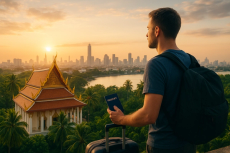

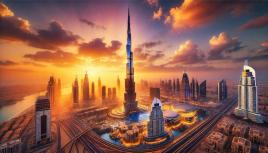
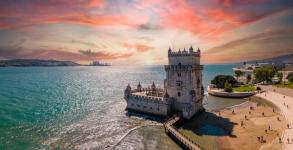
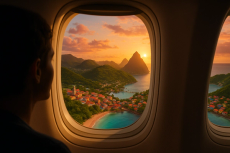
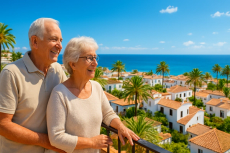

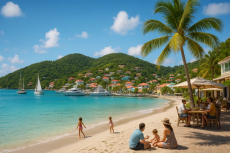
Recently Published
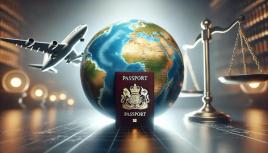
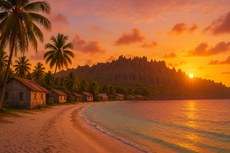






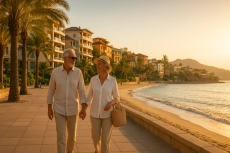
Book a free consultation


